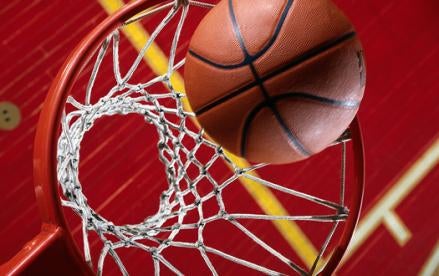The NBA commenced its new season on 22 October with the battle for Los Angeles, as Kawhi’s Clippers edged the Lakers this time. But, less than three weeks into the new season, attention has turned to off-the-court matters; three NBA players who were active on rosters last season have been suspended for testing positive for banned substances.
Wilson Chandler of the Brooklyn Nets tested positive for Ipamorelin, a growth hormone during the summer. The number 1 pick of last year’s draft, DeAndre Ayton tested positive for a diuretic whilst the Atlanta Hawks’ John Collins tested positive for Growth Hormone Releasing Peptide-2, a synthetic drug found to increase appetite and food intake.
The three players have been suspended without pay for 25 games for violations of the NBA/National Basketball’s Player Association (NBPA) Anti-Drug Program.
 The terms governing the Anti-Drug Program are set out in the NBA’s Collective Bargaining Agreement (CBA), entered into between the NBA and the NBPA. The NBPA negotiates the terms of the CBA on behalf of NBA players. The CBA regulates a wide variety of matters relevant to the operation of the NBA.
The terms governing the Anti-Drug Program are set out in the NBA’s Collective Bargaining Agreement (CBA), entered into between the NBA and the NBPA. The NBPA negotiates the terms of the CBA on behalf of NBA players. The CBA regulates a wide variety of matters relevant to the operation of the NBA.
Amongst other things, the CBA governs:
-
the share of “Basketball Related Income” between the players and the league;
-
the team salary cap and tax structures;
-
rules on player contract terms, including salaries and duration;
-
free agency – the process by which out-of-contract players can engage in contract discussions with other NBA teams;
-
rules on trading players; and
-
the aforementioned Anti-Drug Program.
The current CBA was entered into in 2017, and is due to run until the end of the 2023-24 season. The terms of the Anti-Drug Program are set out in Article XXXIII of the current CBA. The new CBA increased penalties for positive tests for performance-enhancing drugs from 20 games to 25 games for first violations. There was also an increase in suspension periods for second violations from 45 games to 55 games. A third positive test continues to result in the player’s expulsion from the league.
Section 9 of the Anti-Drug Program provides that players who have been found to have taken performance-enhancing drugs may have penalties reduced or rescinded through arbitration. Section 19 provides a defence if the player can present:
clear and convincing evidence that he bears no significant fault or negligence for the presence of the drugs in his test result.
This means the player must not have known or suspected, and could not have reasonably known or suspected, that he was taking, ingesting, applying or using the banned substance. Further, the player must establish how the substance entered his system. This is a high evidential bar to meet.
Nevertheless, Ayton is appealing the findings. Diuretics can be used to help the body remove evidence of other banned substances. Ayton’s follow-up tests revealed no traces of other banned substances. The NBPA is preparing to take the case to arbitration, invoking the section 19 ‘unintentional ingestion’ defence, to appeal the decision. Collins intends to appeal the test results on the same basis, claiming that the offending substance derived from a supplement that “unbeknownst to me, had been contaminated with an illegal component”.
An impartial arbitrator will now review the arguments raised by the players and sustain, reduce or rescind the suspensions.
Performance-enhancing drug suspensions are relatively rare in the NBA. ESPN analyst Bobby Marks described the recent spate of suspensions as “unprecedented”. It will be interesting to see how the arbitration proceedings unfold and whether the penalties are changed.




 i
i


